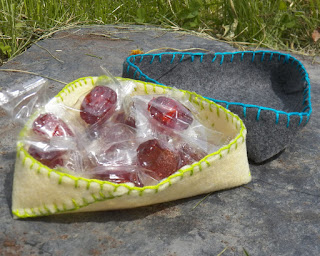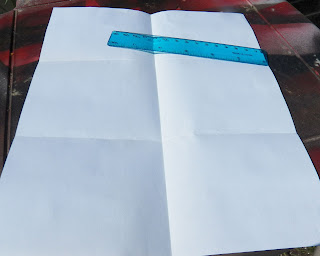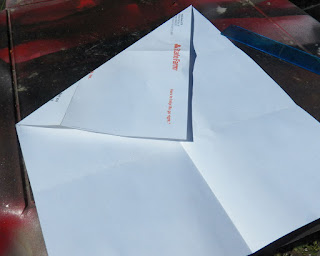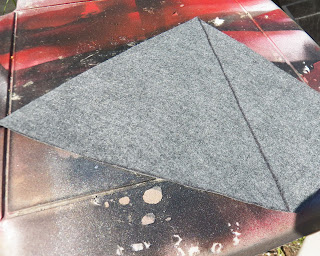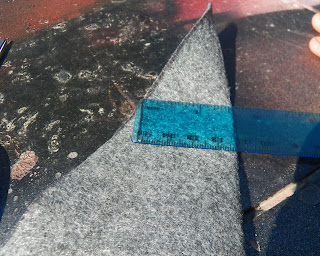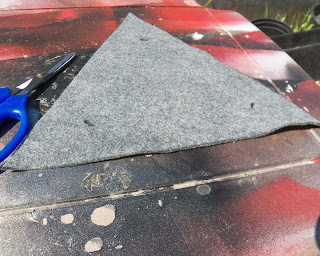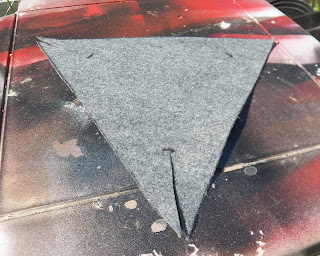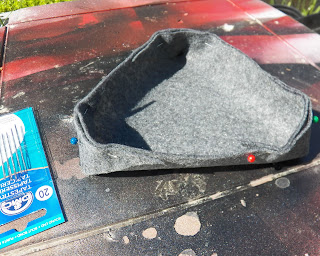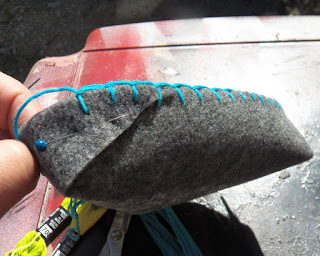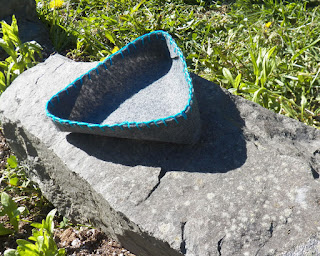One of my favorite things is watching my perennial plants come back, and being able to make gifts of them to friends. There are a few people who have rhubarb plants that came from my original 10 dollar tiny rhubarb crown, quite a few who are growing raspberries that originally came from 3 plants my kids and I put in over a decade ago, and of course, every year, I give out a bunch of strawberry plants.
My favorite 4 plants to give to friends are mint, strawberries, raspberries and rhubarb. I know the ones I have grow well up here because they've done well for me with minimal care. My initial rhubarb plant is now 5 large rhubarbs!
Propagating the type of strawberries I have is really easy. I have a well established patch and every year, I'll pull up a few large crowns and plant them to let them send runners. The reason I put them in their own pots is that way I can put them somewhere convenient to surround with smaller pots to root the runners.
Runners are long stems with a node or two on them that will root. I'm holding one over the plan in this picture.
I've found this can be a good time to do some decorative planting. In this picture, you see a couple runners planted in a vintage colander I picked up. In fall, I'll dig up the crowns and put them in a larger pot or in a bed.
But mostly, I just put them in small pots to give to friends to start their own strawberry patches. I use the same soil mix that I do for my garden. Any basic container mix works just fine. Strawberries are pretty hardy.
I'll use a small piece of wire bent into a U to pin the node on the runner in place until it roots. The pin is sticking up here. I pushed it in right after this photo was taken. I've also used hair pins in a pinch.
When it starts looking like a plant and growing new leaves, you can tug slightly on it to see if it's established roots. If it has, cut the runner between the mother plant and your new baby strawberry.
Mint is super easy to propagate. It will root in water. Cut longish stems, and strip all but the top few leaves from the stem. The leaves you strip can be dried for tea, used as garnish or my favorite? Dumped in a glass of cold water to flavor it.
These are chocolate mint plants that I'm starting now. They will go in a sunny window indoors and I'll switch the water very 3-4 days. In a couple weeks, they will develop more leaves, and start growing roots as well.
When they have some nice roots on them, you can take them out of the water and put them in soil. That's what I did with these plants. They were transplanted into a pot directly outdoors a couple weeks ago It's a different type of mint!
Mint will grow everywhere given a chance. It's generally a very neighborly thing to keep it contained.
A few of my friends will get pots set up for indoor growing using an indoor medium, some will get outdoor plants they can choose what they will do with it.
The next one isn't a gifting plant- but it's one of The Amazing Turnip Girl's favorite plants because as she puts it "Green onions are the easiest thing to pirate!!"
I swear she watches for the first batch of green onions I buy for a recipe in spring. She cuts them down but leaves the white bulbous ends to put in dirt. Then through out summer, she keeps it watered and cuts fresh green onions as wanted or needed for recipes.













